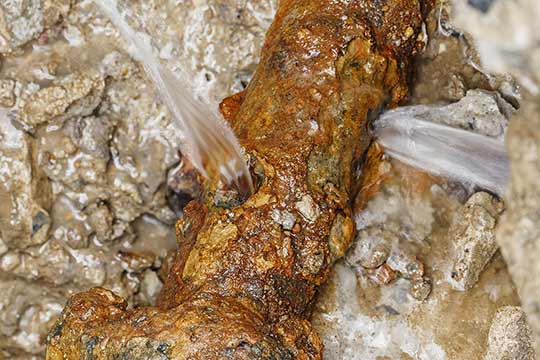
Plumbing pipes will leak, corrode, or burst at some point in their life. That is one of the realities of plumbing systems. The best you can hope for, says Volusia County Property Management, is to repair or replace the pipes before this happens or catch the problem on time; before it causes significant damage.
But a lot also depends on the kind of pipes you have in your plumbing systems. Generally, your sewer line and water pipes will be made of one of these three materials: clay, cast iron, or PVC. Clay pipes are the oldest of these three, which went out of use more than 80 years ago.
Cast iron pipes are not old as clay pipes, and they were used until the late 1980s. But even though cast iron pipes have been phased out, it is not surprising to find homes with sewer or water pipes made of cast iron. What are the issues with cast iron pipes?
What you should know about cast iron pipes
Cast iron pipes were introduced around 1900 as a replacement for clay pipes. These were commonly used until the 1980s, when they stopped being used for residential plumbing installations. But even after the arrival of PVC, cast iron pipes were still used, especially as underground piping.
Cast iron pipes have 50-100 years life expectancy, but this is only for above-ground installations. Once cast iron pipes are buried in the ground, their life expectancy falls by 50%. What are the reasons for this shorter lifespan?
Cast iron is a form of iron, and as you know, iron rusts. The rate at which iron rusts depends on how much water it is exposed to. Above-ground cast iron pipes are exposed to less water than below-ground cast iron pipes, hence the difference in their life expectancies.
When cast iron pipes are buried, they are exposed to moisture from both sides. On the outside, the pipes are in contact with the soil around them, and they will get wet. At the same time, they are also wet on the inside because of the water that is constantly running through them.
From the first minute you lay a cast iron pipe in the ground, it starts to deteriorate. In addition to water, other things can accelerate the deterioration of cast iron pipes and influence how fast the pipes begin to leak. These include:
Detergents, shampoo, and soap
These have caustic substances inside them that react with the metal in cast iron pipes and eat away at the materials of those pipes. Whether this is laundry soap or dishwashing soap, they will accelerate the deterioration of your cast iron pipes.
Chemical drain cleaners
Chemical drain cleaners are bad for plumbing systems, regardless of whether you have PVC or cast iron pipes. This is not to say that chemical drain cleaners will not remove clogs in your home drains. They will remove clogs, but they will also damage your pipes.
This is because of the active agent in drain cleaners, such as sulfuric acid, or other corrosive materials. Acids and cast iron pipes do not mix well; using chemical drain cleaners when you have iron plumbing is a bad idea.
Acidic soils
Soil conditions will also affect the performance and lifespan of your cast iron pipes. Acidic soils have the same effect on cast iron pipes as drain cleaners. If the soil in your area is acidic, the cast iron pipes will break down faster and leak.
Grease buildup
In PVC pipes, grease can build up and block the drainpipes. But the effect of grease inside cast iron pipes is worse. Grease will not simply clog a cast iron pipe; it will cause it to rot.
When grease sits in any part of your cast iron piping for a long time, it results in what is known as “channel rot.” This is where grease eats out a whole section of piping until the soil outside the pipe is visible from inside the pipe. When this happens, you cannot simply clean the pipe; you have to replace it.
If you still have cast iron pipes in your plumbing system, what can you do about them? If you have been experiencing slow drains, leaks, or persistent backups, you can have your pipes inspected to know the cause of the problem. A sewer camera inspection will tell you the state of your pipes and help you decide the next steps.
But if you really want to solve the issues permanently, the best option is to completely replace your home plumbing pipes. Replacing pipes in a plumbing system is not cheap, and you may not be ready for that expense. That is understandable. However, if you really want peace of mind from your plumbing system, this is something you should start to plan and prepare for.